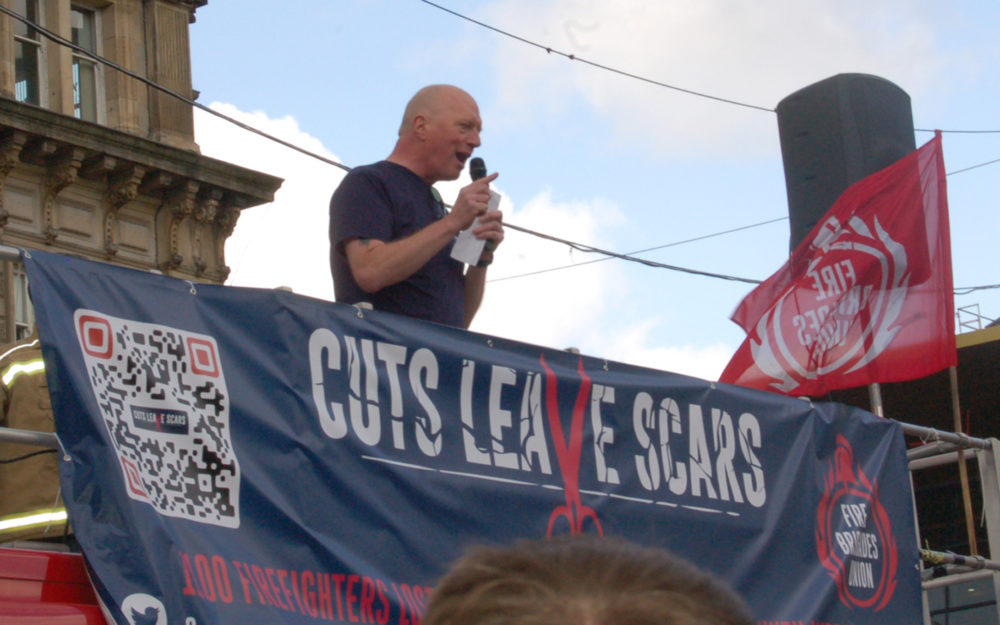New strikes law ‘could trigger biggest act of defiance by unions since 1970s’

A senior union leader has warned that a new law on strikes could trigger the start of trade union defiance not seen since the 1970s.
Matt Wrack, general secretary of the Fire Brigades Union, issued the warning ahead of a special TUC conference next weekend to discuss how to respond to controversial regulations aimed at ensuring minimum service levels during industrial action.
He warned that the new law could trigger a wave of strikes next year, up to and during the general election.
Unions believe the new law is expected to start taking effect across three sectors – the ambulance service, rail network and border security – from the middle of December, with regulations for the fire and rescue service, education and nuclear decommissioning also set to be introduced soon.
Work notices
Employers will be able to issue “work notices” to make staff come in on strike days.
Mr Wrack said: “The Act is a blatant attempt to ban strikes and prevent workers defending their jobs, wages and conditions against the backdrop of Tory austerity and the cost-of-living crisis.
“It’s about protecting bosses against workers.
“The reality of the legislation is now becoming clear. In key sectors, employers will be able to issue work notices compelling a majority of employees to work even after a democratic vote for strike action.
“That’s effectively trying to outlaw strikes.
“It’s the biggest attack on workers’ rights in post-war Britain, and reminiscent of the oppressive restrictions that exist in dictatorships and authoritarian regimes.
“The FBU and other unions will not accept this attack on working people by this Government led by multi-millionaires and which ruthlessly serves the interests of the billionaires and bosses.
“The TUC summit could well mark the start of a campaign of non-compliance with this legislation, with workers striking in defiance of work notices.
“A campaign of non-cooperation backed by the TUC would represent the most significant act of defiance by unions since the 1970s when anti-worker legislation was defeated through mass defiance of the law.
“This could mean a wave of strikes next year, up to and during the next general election.”
Support our Nation today
For the price of a cup of coffee a month you can help us create an independent, not-for-profit, national news service for the people of Wales, by the people of Wales.








Cons never learn. There are many ways to fight back as well that do not include strikes, as well as all the way to a mass walkout, a general strike.
Ideally strike action should be the nuclear option, used when all other methods fail. As you say, there are a lot of other effective actions that can be taken that don’t involve strike action. Working to rule is often a very effective way of taking action as employers are unable to do anything about it as workers are fulfilling their contracts, but crucially, absolutely nothing more. General strikes are difficult in the UK due to the rather splintered nature of trade unions here. Germany does things much better, but this is largely due to advice given in the post-war reconstruction… Read more »
Sack them all.
They should be grateful they have jobs.
I vote Tory and read Wales Online.